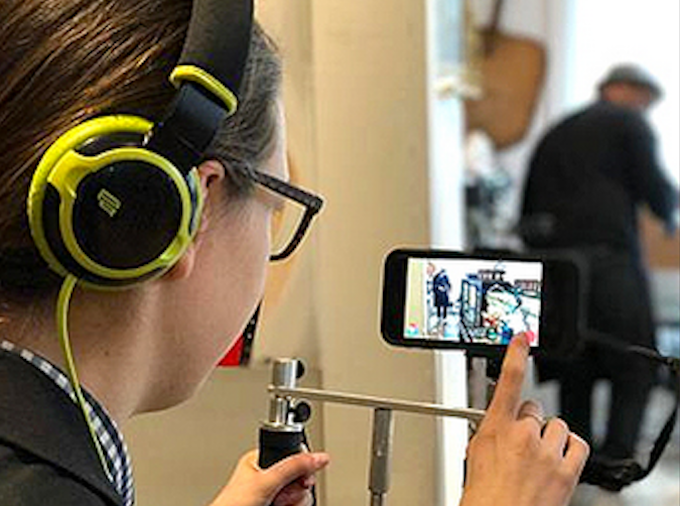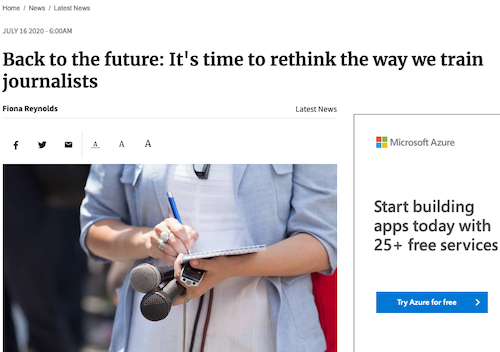
COMMENTARY: By Alexandra Wake in Melbourne
How disappointing to read another opinion piece in Australian papers repeating time-old arguments that fail to acknowledge the excellent education in journalism provided by universities around the country, an education many working journalists – and therefore readers – have benefited from.
It is concerning that anyone would argue that there are thousands of journalism graduates in Australia each year. There are not thousands of journalism graduates in Australia, as anyone who has tried to hire one in regional Australia would well know.
At my own university, RMIT, we can barely graduate enough journalism students for the needs of the Victorian news industry.
READ MORE: Back to the future: It’s time to rethink the way we train journalists
Universities in the states also report excellent employment opportunities for recent and soon-to-be graduates.
Australian universities generally offer a more general communications degree that can be used for a range of careers beyond journalism. Very few programmes offer straight journalism degrees and even those that do provide students with a range of courses that give graduates a much greater range of skills than the vocational skills taught in the legacy news organisations of yesteryear.
Thirty years ago, there was some in-house training for journalism cadets. I am also a product of the “straight from high school” cadetship system of this period, and I am acutely aware of its deficits.
On-the-job training at legacy media was well-intentioned and concentrated mostly on correct grammar rather than the skills required for modern reporting.
Critical thinking, research skills
Today’s university graduates who want to become journalists are likely to have completed courses that allow them to manipulate data spreadsheets, create visualisations, fact check and verify information, capture photographs and audio, take photographs, and put together audio and visual packages. They also develop critical thinking and research skills, and learn about politics and the economy.
New technology has provided journalism students with opportunities far beyond what is offered by the legacy media. Media fragmentation and the speed of disseminating information and opinion present opportunities for graduates with a good understanding of how to leverage new technologies and platforms such as social media, digital and interactive TV, and how to produce rich mobile content.

I certainly agree with it would be fantastic to have entry-level journalism students paid while learning. For me, the legacy media is no longer in a position to provide sufficient in-house education to young trainees because they’ve been cut to the bone with no space for training and certainly cannot provide the depth of training that a university offers.
However, I’m sure all educators would welcome legacy news offerings offering paid journalism internships which are already an important part of a journalism university programme.
While some are pessimistic about the industry, I have no hesitation in encouraging anyone interested in a career in journalism to enrol in a university programme. Journalism is not only a fun-filled and exciting course of study, it is one from which, when our work is done well, every Australian benefits.
In short, our work is critical to and underpins civil society.
Dr Alexandra Wake is president of the Journalism Education and Research Association of Australia (JERAA).













































